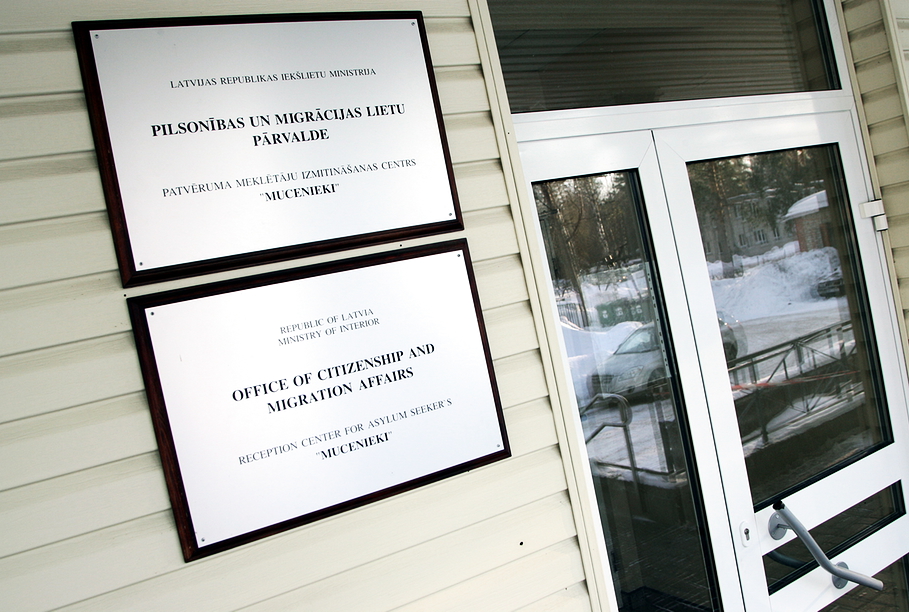Both agencies are charged with the implementation of EU requirements regarding the housing and care of asylum seekers in the custody of Latvian authorities. If the asylum-seeker’s identity is uncertain or there are suspicions that the person may pose a security threat, the Border Guard maintains the closed-regime facility ‘Daugavpils’. However in other cases the asylum seekers are offered free-regime housing in the ‘Mucenieki’ center on the outskirts of Riga in Ropaži county.
Latvia should ensure minimum standards of care for the asylum seekers – food and hygiene products, room and board, translation services, primary health care, etc. However the state hasn’t clearly defined which costs should be covered by budget funding.
This has created a situation where EU-granted European refugee funding resources meant to ensure additional care to improve the greeting conditions for asylum seekers are in fact spent just to bring the existing minimal conditions up to par.
That, in turn, has encouraged extremely imbalanced cost practices in the care and housing of asylum seekers in the two agencies.
Auditors found that the services and content differ tremendously between asylum seekers housed under the care of the Border Guard and those under that of the PMLP center in Mucenieki.
One day with the Border Guard costs €140.77, and €20.70 at Mucenieki. But the PMLP asylum seekers have access to paid specialist services and prescription medicine, whereas under the Border Guard’s care only if they have access to personal funds of their own.
It’s a similar situation with feeding them. The Border Guard spends at least an average of €5.15 per day, while the PMLP spends €2.15, which includes not just food, but also hygiene and first-aid goods.
Auditors also point to the very low capacity usage of the asylum center’s facilities. At the ‘Daugavpils’ closed-regime facility in 2013 only 23% of the capacity was used, by the first ten months of 2014 it had grown to 43%. But a facility built in Liepāja for the purpose of housing asylum seekers detained in closed-regime are not being used at all. The Border Guard plans to build yet another facility in Riga, but the VK recommends reviewing whether or not the project is prudent, suggesting instead a possible expansion of the ‘Daugavpils’ center, if necessary.
At the end of the process, no less significant remains the issue of integrating the refugee or alternative-status seeking person into daily life and society. The VK concludes that the state has worked out neither any proper integration policy nor guidelines for getting local governments or non-governmental organizations involved.
Auditors point out that the minimum support offered by the state – a grant of €256.12 per month for survival and no more than €49.80 per month for language-learning – cannot resolve the issue of integrating these persons into daily life in Latvia.
The person may have received the right to live here, but there haven’t been any real preconditions or modes of assistance established in how to do it. In reality the involvement of these persons in Latvia’s social environment is up to the available EU funding resources and the non-governmental organization activities that can attract these resources.
Altogether the VK has proposed five specific recommendations on improving the situation.




























